TrustPoint Hospital provides leading inpatient psychiatric programs for individuals experiencing crisis from substance abuse or mental health issues. Our behavioral health center is at the forefront of effective evidence-based practices. TrustPoint offers a safe environment to help adults regain control of their lives.
Our Behavioral Health Services
At TrustPoint Hospital, we are pleased to offer specialized treatment for individuals who are in need of comprehensive inpatient care to address behavioral healthcare concerns. We recognize that such concerns affect people differently and, as such, require specific interventions so that each individual’s exact needs can be met. In order to accommodate these varying needs effectively, at TrustPoint, we offer behavioral healthcare treatment services within four separate units.
Adolescent Behavioral Healthcare Unit
The adolescent behavioral healthcare unit at TrustPoint Hospital in Murfreesboro, TN, provides a comprehensive, personalized treatment experience to young people ages 10-17.
Our adolescent unit accepts young people whose lives have been disrupted by various mental and behavioral health challenges, including depression, anxiety, oppositional defiant disorder (ODD), attention-deficit/hyperactivity disorder (ADHD), and obsessive-compulsive disorder (OCD).
Please note that the list of disorders in the previous paragraph is a representative sample of the many disorders and related concerns that we are prepared to treat within the TrustPoint adolescent behavioral healthcare unit. All admissions decisions are based on a thorough review of each young person’s needs, treatment history, and goals.
Typical length of time in our adolescent behavioral healthcare unit is five to seven days. The general goal of treatment is to help adolescents achieve the level of stabilization that will allow them to return home or step down to a less intensive level of care.
While an adolescent is healing with us, their personalized treatment plan may include medication management, individual therapy, family therapy, and a broad scope of group therapy opportunities.
We encourage parents to play an active role in their adolescent’s treatment and recovery, and we provide detailed discharge plans to promote continued progress in the weeks and months after a young person has completed their time in treatment with us.
Adult Behavioral Healthcare Unit
The adult inpatient behavioral healthcare unit provides treatment to patients between the ages of 18 and 65 who are suffering from thought disorders or other co-occurring disorders. Examples of the types of disorders that are treated on this unit include, but are not limited to, the following:
- Psychosis
- Schizophrenia
- Schizoaffective disorder
- Delusional disorders
- Co-occurring substance use disorders
Adult Affective Disorders Unit
When an individual is suffering from a mental health disorder, the symptoms that he or she experiences can often be severe enough to disturb his or her ability to continue functioning appropriately on a day-to-day basis. The turmoil, discord, and strife that can impact an individual’s life when he or she is dealing with a mental illness can be all-consuming. TrustPoint offers a lifeline to adults ages 18-65 struggling with mental health challenges on this unit with a focus on mood disorders. Our 28 bed inpatient program is designed to treat a variety of conditions while giving patients and families the resources and support they need to address acute life crises or behavioral health issues standing in the way of a peaceful and productive life.
Senior Psychiatry Unit
The senior psychiatry unit provides treatment to patients ages 65 and older who are suffering from mood disorders, thought disorders, cognitive disorders, and other co-occurring conditions. Individuals who receive treatment on this unit may be experiencing issues with grief and loss, adjustment problems, or significant mood disturbances. Examples of the types of conditions that are treated on this unit include, but are not limited to, the following:
- Behavioral disturbances related to Alzheimer’s disease/dementia
- Behavioral disturbances related to other cognitive disorders
- Anxiety disorders
- Depressive disorders
- Bipolar disorder
Types of Treatment
Regardless of whether an individual is admitted into the adult behavioral healthcare unit, the adult affective disorders unit, adolescent unit, co-occurring disorders unit or the senior psychiatry unit, he or she will receive an individualized treatment plan in order to ensure that all of his or her needs are met while he or she is in treatment. The specific interventions and treatment modalities that are incorporated into an individual’s overall plan of care will vary based on his or her needs and abilities. Examples of the treatment methods that may be implemented are discussed in the following:
- Medication management – When an individual is suffering from the symptoms of a mental health disorder, he or she can often benefit from the use of psychotropic medications. Depending on the particular symptoms that the person is experiencing, the type, dosage, and frequency of such medications will vary. Not everyone will be prescribed medications, but those who are will have the opportunity to meet with a psychiatrist, a Licensed Independent Practitioner, a physician, and/or a nurse practitioner on a daily basis to ensure that the medications are appropriately alleviating their symptoms and to make any changes that may be necessary.
- Individual therapy – Individual therapy sessions are held on an as-needed basis for patients who are receiving treatment in one of TrustPoint’s acute behavioral healthcare units. During these sessions, patients will meet with a social worker or other licensed practitioner to process through their experiences in treatment and to address any problems or concerns that may arise.
- Group therapy – Group therapy sessions offer patients an outlet for expressing themselves among peers who may be dealing with challenges that are similar to their own. This can be a wonderful avenue for individuals to give and receive support, and to come to realize that they are not alone in the struggles they are facing. Group therapy sessions can also be a source of education for patients as they progress through treatment.
- Family therapy – Family therapy is incorporated into a patient’s treatment plan when it is determined that it would be clinically beneficial to his or her recovery. When such sessions are held, they are led by social workers who help family members process through how they have been impacted by their loved one’s struggles, as well as to offer them guidance as to how they can best support their loved one during and after treatment.
- Experiential therapy – When individuals are working to overcome psychiatric struggles, or to learn how to manage the symptoms of mental illnesses, incorporating experiential therapies can be beneficial to helping them heal not only their minds, but their bodies and spirits as well. Examples of experiential therapies that patients may participate in while in treatment at TrustPoint can include music therapy, aroma therapy, role-playing, and outside physical activities.
- Telehealth services – Our adult IOP currently offers virtual programming for those who are unable to attend in-person group therapy sessions. This clinician-led option meets Mondays, Wednesdays, and Fridays from 10 a.m. to noon and gives patients a chance to interact exclusively with their own virtual group while receiving the same benefits of treatment they would experience face to face.
If you or an important person in your life is suffering from the symptoms of a mental health condition and is need of acute care in order to stabilize and begin developing the skills necessary for managing future symptoms, look no further than TrustPoint Hospital in Murfreesboro, Tennessee. Our knowledgeable Access Intake Team can help guide you or your loved one as you make this life-changing decision to begin a healthier and brighter future.
Co-Occurring Disorders Unit
Many adults who develop mental health disorders also struggle with substance use and addiction. If co-occurring addiction is not identified and addressed during treatment, this can have a significant negative impact on an individual’s ability to make sustained progress toward improved health.
At TrustPoint Hospital, we have created a specialized unit to provide focused, comprehensive care for adults age 18 and older whose lives have been disrupted by mental health concerns and co-occurring substance use disorders (which is the clinical term for addiction). In addition to a variety of therapeutic interventions, programming options in our co-occurring disorders unit also include detoxification, medication-assisted treatment (MAT), and 12-Step education and support.
As is the case with all programming at TrustPoint, adults who receive care in our co-occurring disorders unit follow personalized plans that are based on a thorough assessment of their unique strengths, needs, and goals.






